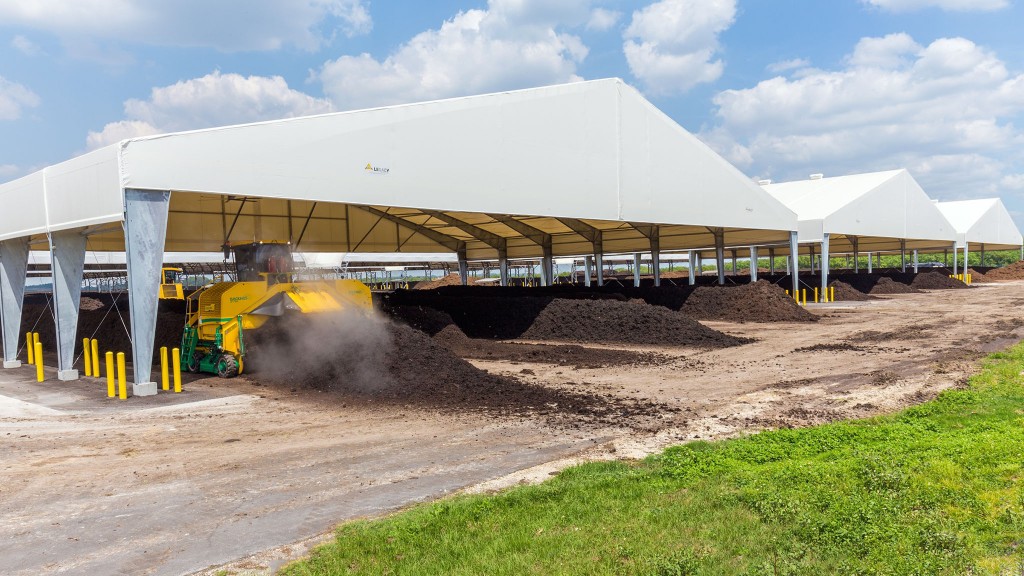
The recent announcement by the Quebec Minister of the Environment and the Fight against Climate Change to push organics residuals recycling forward is monumental. The difference between similar initiatives put forward in the past in which diversion goals were declared, is this time the province is backing its goals with funding. Because of this, these goals have a very good chance to be realized.
By 2025, Quebec wants all its residents to have access to organics recycling, and it wants all businesses in the IC&I sector recycling their organic residuals. By 2030, the plan is to recycle or recover 70 percent of organic residuals in the province, reducing 270,000 tonnes equivalent CO2 of greenhouse gas emissions annually.
Quebec is supporting its goals with financial commitments to the tune of $1.2 billion over the next decade. Additionally, the landfill levy will go from $23.51 to $30 per tonne. As the organics recycling infrastructure expands in Quebec, recycling "encouragement" will head toward "requirement," with planned investment in compost and digestate end market development also helping to build the working dynamics of the system envisaged.
Comparatively, Ontario has also been working on an organics residuals recycling expansion plan, albeit with very limited discussion on how any expansion from the current at-capacity infrastructure will be funded. Truly, a "show me the money" mentality has to be fully discussed and included in any game plan if the achievability of the targets is to be taken seriously.
The news out of Quebec is long overdue. It's about time that organics recycling is being taken very seriously by government decision makers who are responsible for waste diversion, local self-reliance and sustainability, as well as climate change mitigation, soil health and productivity. Accolades should be directed to those who, virtually unassisted, have already stepped up to build this infrastructure, achieving an annual collective diversion impact of over 5 million tonnes of organic residuals away from landfill burial and into processing facilities where various outputs include compost and digestate, as well as renewable energy.
And yet, while this processing "mass" of five million tonnes makes organic residuals by far the #1 material recycled across Canada, we also know that we are currently only realizing about one-third of our annual potential, with much more work needed ahead in building infrastructure, participation and local markets.
In another positive development, the International Solid Waste Association (ISWA) has released a four-part document that does an excellent job of showcasing the overall value of organics recycling and, very specifically, the value of compost and anaerobic digestate when applied to soil. ISWA is very generously sharing this information globally, complementing the work done by organizations such as the Food and Agriculture Organization of the UN to influence better food security and environmental sustainability.
Three of the ISWA documents are already available at no charge, with the fourth - which compellingly quantifies the benefits of compost in terms of carbon sequestration, water-holding capacity and nutrient - soon to be released. All four of these reports can be freely downloaded and should used with fervour by decision makers and advocates in North America to push organics recycling faster and further into all aspects of society.
At this year's upcoming, virtual, 30th Annual Organics Recycling Conference, scheduled for September 28 - October 2, we are delighted that the ISWA reports' authors will be keynote speakers. Our virtual format advantages go even further as the Compost Council of Canada teams up with our colleagues at Cré (the Composting & Anaerobic Digestion Association of Ireland) to jointly present sessions during the conference, as well as enable visits to organics recycling facilities around the world during various sessions.
The 30th Annual Organics Recycling Conference of The Compost Council of Canada will be held online during the week of September 28 - October 2, 2020.
Susan Antler is the executive director of the Compost Council of Canada.
This article was originally published as the Last Word in the July/August 2020 edition of Recycling Product News, Volume 28, Number 5.



